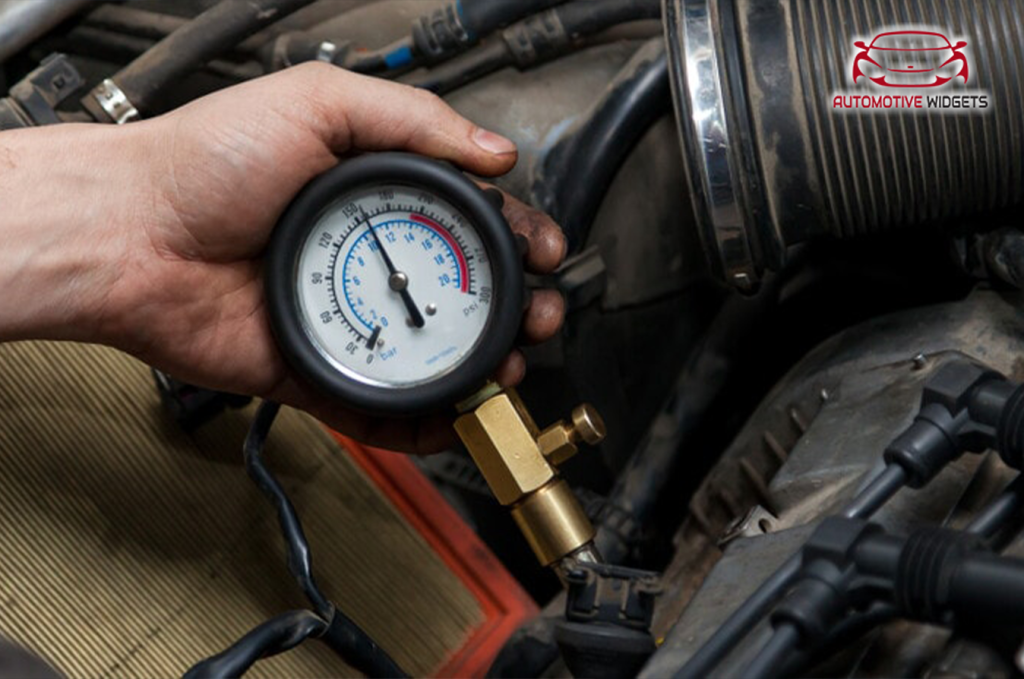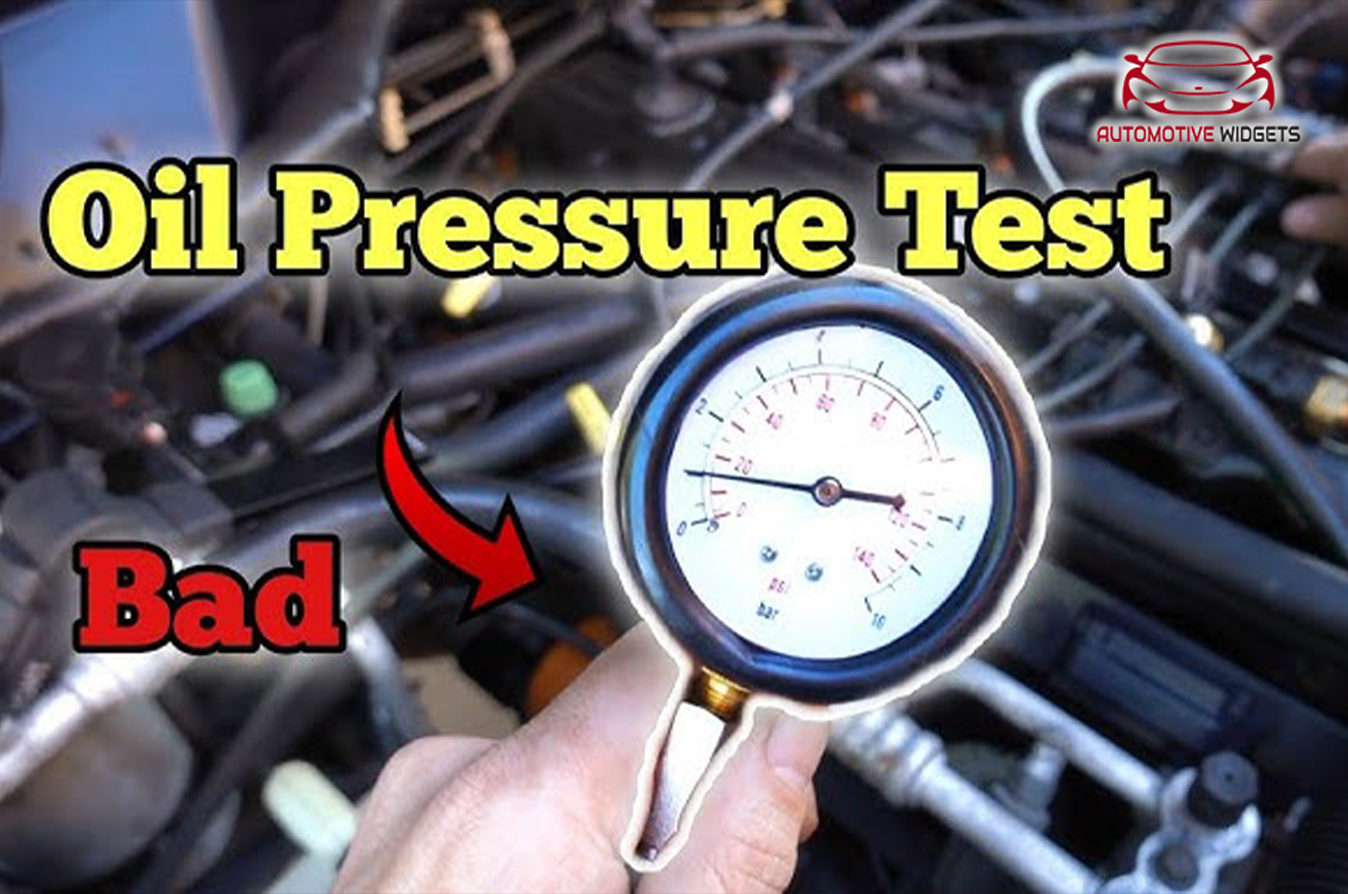High oil pressure is typically caused by an overactive oil pump or too much oil in the engine. Both of these conditions can cause damage to your engine if left unchecked. If you notice your oil pressure gauge reading higher than normal, or if your check engine light comes on, it’s important to have your vehicle checked by a professional as soon as possible.
Is your car’s oil pressure too high? Here’s what you need to know. Your car’s oil pressure is important for keeping your engine healthy and running smoothly.
If the pressure is too high, it can cause damage to the engine. So, what is considered high oil pressure? The ideal oil pressure for most cars is between 20 and 30 psi (pounds per square inch).
However, some engines may have different requirements. Consult your owner’s manual or a mechanic to be sure. If you notice that your car’s oil pressure gauge is reading higher than normal, don’t panic.
It could just be a faulty sensor. However, it’s always best to get it checked out by a professional just to be safe.
Is 70 Psi Too High for Oil Pressure?
Most mechanics agree that 70 PSI is too high for oil pressure. The ideal range is between 20 and 60 PSI, so 70 PSI is definitely outside of that. There are a few reasons why having too high of oil pressure can be a problem.
For one, it can put unnecessary wear and tear on your engine. The higher the pressure, the harder your engine has to work, which can lead to premature failure. Additionally, high oil pressure can cause leaks.
If the seals in your engine aren’t designed to handle that much pressure, they could start leaking oil, which would obviously be a huge problem.
So if you’re seeing readings of 70 PSI or higher, it’s definitely something you should have checked out by a mechanic as soon as possible.
What Causes Too High Oil Pressure?
If you’re noticing too high oil pressure in your vehicle, there are a few potential causes. One possibility is that the oil level is too high. This can happen if you’ve recently added oil to the engine or if there’s an issue with the sensor that monitors oil levels.
Another possibility is that the oil pump isn’t functioning properly. This could be due to a problem with the pump itself or with something blocking its flow, such as a dirty filter. If the pump isn’t working correctly, it can cause increased pressure throughout the entire system, including in the bearings and gaskets.
Finally, high oil pressure can also be caused by engine problems such as piston rings that are worn out or damaged. If any of these parts aren’t working correctly, it can lead to higher-than-normal pressure in the system. If you’re concerned about high oil pressure in your vehicle, it’s best to have it checked out by a mechanic so they can determine the root cause and make any necessary repairs.
What is Considered Bad Oil Pressure?
Bad oil pressure can be caused by a few different things. The most common is simply a low oil level, which will cause the oil pump to work harder and not be able to build up enough pressure. A worn-out or damaged oil pump can also cause bad oil pressure.
Another possibility is that the engine’s bearings are worn out, which will allow too much oil to pass through and not enough to stay in the critical areas. Oil sludge can also clog up an engine and reduce oil pressure. If you’re experiencing bad oil pressure, it’s important to get it checked out as soon as possible.
If left unchecked, it could lead to serious engine damage.
What Causes 80 Psi Oil Pressure?
It is typically caused by a blocked oil filter, low oil level, or excessive sludge buildup. If the problem is due to a blocked oil filter, then replacing the filter should solve the issue. If the problem is due to low oil levels or excessive sludge buildup, then more comprehensive engine repairs may be necessary.
High Oil Pressure – What to Do? Fixing High Oil Pressure Issues

How Long Can I Drive With High Oil Pressure
If your car’s oil pressure warning light is on, it means that there is a problem with the oil pressure in your engine. This could be caused by a variety of things, including low oil levels, dirty oil, or a faulty oil pump. driving with high oil pressure can cause serious damage to your engine, so it’s important to take care of the problem as soon as possible.
Here are some tips on how to handle high oil pressure in your car:
1. Check Your Oil Level: The first thing you should do if you see the oil pressure warning light is to check your car’s oil level. If the level is low, add more oil until it reaches the full line on the dipstick.
2. Change Your Oil: If your car’s oil is dirty or old, it could be causing a high-pressure issue. Get an oil change as soon as possible to fix the problem.
3. Check for Leaks: A leaking gasket or seal can also cause high oil pressure in your car. Inspect all of the hoses and seals around your engine for any leaks and have them fixed as soon as possible.
4. Replace Your Oil Pump: In some cases, the problem may be with your car’s oil pump itself.
What is Normal Oil Pressure
Normal oil pressure is the pressure of your engine’s oil when it is at operating temperature. The normal range for oil pressure is between 15 and 45 psi, but it can vary depending on the make and model of your vehicle. If your oil pressure is outside of this range, it could be an indication of a problem with your engine.
Is 60 Psi High Oil Pressure
If you’re concerned about your car’s oil pressure, you’re not alone. Many drivers worry that a high reading on the oil pressure gauge means their engine is in danger. However, it’s important to understand that there is no one-size-fits-all answer when it comes to oil pressure.
Depending on your vehicle and driving habits, normal oil pressure can range from 30 psi to 60 psi or more.
So, what does a high reading on the oil pressure gauge really mean? In most cases, it’s nothing to worry about.
If your car is new or has low mileage, it’s not uncommon for the oil pressure to be on the higher end of the spectrum. This is because the engine hasn’t had a chance to build up any deposits yet and everything is still running smoothly. Similarly, if you frequently drive at high speeds or tow heavy loads, your engine will likely have higher than average oil pressure.
Of course, there are some exceptions where high oil pressure could be cause for concern. If you notice that your oil light comes on or starts flickering when your gauge reads 60 psi or higher, this could indicate an issue with your engine bearings. It’s also worth keeping an eye on your car’s temperature gauge; if the two readings start to increase together, this could be a sign of an impending overheating problem.
If you’re ever unsure about what constitutes normal oil pressure for your car, consult your owner’s manual or ask a qualified mechanic for advice. With proper care and maintenance, most engines will run happily at whatever their ideal oil pressure happens to be – so don’t sweat it if yours falls on the higher side of things!
What Can Cause High Oil Pressure
If your car’s oil pressure is too high, it could be caused by a few different things. First, check the oil level and make sure it’s full. If it is, then the next thing to check is the oil pressure sensor.
This sensor can get dirty or damaged, causing inaccurate readings. Finally, if neither of those are the problem, it could be an issue with the engine itself. If you think your car might have high oil pressure, take it to a mechanic to have it checked out.
Conclusion
If your car’s oil pressure is high, it means that the engine is getting too much oil. This can be caused by a number of things, including a leak in the oil system, an overfilled oil reservoir, or a problem with the engine itself. High oil pressure can lead to engine damage, so it’s important to have it checked out by a mechanic as soon as possible.




Leave a Reply